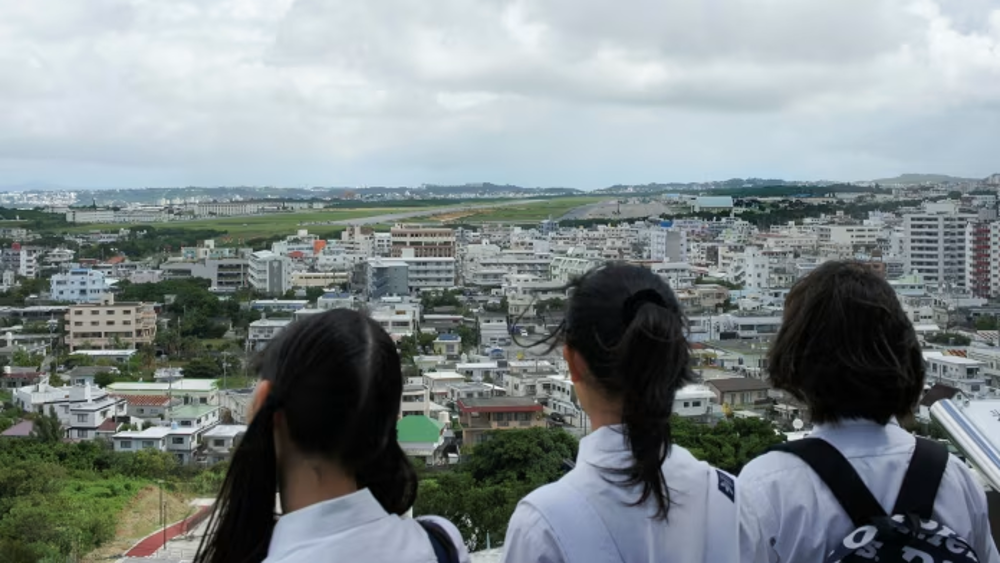Japanese rally in tens of thousands to protest US military presence
Tens of thousands of people have demonstrated in Japan against the heavy US military presence and violent crimes by American personnel on the Island of Okinawa.
The protest rally, considered one of the largest anti-US demonstrations held in Japan in the past two decades, was held at an athletics park under scorching heat at 2:00 p.m. local time (0500 GMT) on Sunday in Okinawa’s prefectural capital, Naha.
The demonstrators, who organizers said numbered at more than 50,000, called for the scrapping of plans to relocate a major US Marine facility in the center of the island to pristine waters off its northern coast.
The US and Japan agreed in 1996 to relocate the US Marines’ Futenma base, currently in a heavily-populated area, to a new site in Okinawa. However, many residents, whose prefecture was the only part of Japan to suffer a bloody land battle during World War II, want the base and the US military off their land altogether.

Okinawa has become known as the site of enduring tensions with the US forces deployed there. More than half of the 47,000 US military forces in Japan are stationed on the island.
The US military bases in Japan are a key part of the US-Japan security alliance.
On May 19, Okinawan police arrested American national Kenneth Franklin Shinzato, a former US Marine who works at the US Kadena Air Base, for reportedly disposing the body of 20-year-old Rina Shimabukuro in a weed-covered area in southern Okinawa after allegedly raping and murdering her back in April.
Police have found DNA matching the dead woman’s body in a car belonging to Shinzato.
The Sunday rally began with a message from Rina’s father, after a minute of silence for her.
“Why my daughter, why was she killed?” read the message. “My thoughts are the same as those of all the bereaved families that have met with suffering up to now.”

In early June, a US sailor was arrested for drunk-driving the wrong way down a street in the region and injuring two people.
In 2013, two American sailors admitted to raping a woman in Okinawa a year before in a case that sparked huge anti-US sentiments in Japan.
The gang rape of a 12-year-old Okinawan girl by three US servicemen in 1995 also sparked mass protests.
In 1995, the abduction and rape of a 12-year-old girl by three US servicemen triggered huge protests, prompting Washington to pledge efforts to strengthen troop discipline to prevent such crimes and reduce the US footprint on the island.

Two US marines accused of raping Japanese women in Okinawa

China deploys naval group in warning to US, Philippines over drills

China ‘firmly’ opposes countries making trade agreements with US at its expense
MSF: 70% of burn victims in Gaza are children, little chance of recovery
Trump, Zelensky hold 'productive' talks ahead of Pope's funeral in Rome
Explainer: What is the significance of Shahid Rajaee Port for Iran?
Iran, US conclude third round of indirect talks in Oman
The case of Raffi Berg and BBC: Zionist infiltration of the mainstream media
No talks on tariffs between China, US: Chinese Foreign Ministry
Hamas: No partial truce, only comprehensive deal acceptable
Yemeni forces target Israeli Nevatim Airbase in retaliatory missile strike












 This makes it easy to access the Press TV website
This makes it easy to access the Press TV website